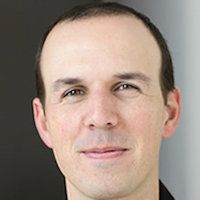Poor Sleep Habits Linked with Risky Sexual Behavior in HIV-Susceptible Population
Men who don’t get much sleep also tend to make poor sexual decisions when it comes to HIV prevention, a new study suggests.

Brett M. Millar, PhD
Men who have poor sleep habits also tend to engage in riskier sexual behavior, according to new research which highlights the role of sleep quality in the prevention of sexually transmitted diseases like HIV.
Scientists from Hunter College at the City University of New York, Harvard Medical School, and the New York University School of Medicine collaborated on the study, in which 559 men who have sex with men (MSM) in Paris, France, were asked about 4 sleep factors (sleep quality, sleep duration, problems falling asleep, and problems staying awake during wake-time activities), as well as their habits regarding condom-less anal intercourse and the use of substances before or during sex.
The data showed all 4 sleep behaviors were associated with the risky sexual behavior, and poor sleep quality and problems falling asleep were associated with positively associated with using substances before or during sex.
Brett M. Millar, PhD, a research scientist at Hunter College, told MD Magazine® the findings align with other research showing tiredness and lack of sleep are associated with lower activation in the prefrontal cortex, the part of the brain associated with self-control capabilities.
“At the same time as dampening or weakening that area of the brain, tiredness also seems to fire up the more emotion-based areas like the amygdala such that, in effect, people tend to feel more charged up emotionally (especially by fear, frustration, or essentially becoming more volatile), and less able to manage/resolve that emotionality,” Millar said.
Earlier this year, Millar and colleagues published a separate paper which showed that gay and bisexual men were more likely to have unprotected sex if the intercourse occurred at or after their usual time of feeling tired. They also found tiredness was associated with higher sexual desire and higher rates of receptive anal sex.
Millar said there could be other explanations for the correlation. For instance, it could be that poor sleep habits and risky sexual behavior are both results of certain personality types—people with poor self-regulation. But he added the evidence of the impact of sleep deprivation on the brain suggests there’s probably more to the story.
“So yes, on one hand, poorer sleepers may be more prone to be in risky situations,” Millar explained, “but their level of tiredness or fatigue in that moment of making a decision works to ‘double’ their risk because they face those decisions with even less capacity to self-regulate, or think things through deliberately and carefully.”
All of this raises important questions for clinicians as they work to help patients understand risk factors and prevent sexually transmitted infections.
Millar said he hasn’t seen research indicating the extent to which sleep health is regularly discussed by physicians, but he said anecdotal insights from sleep medicine physicians suggest the topic is woefully neglected.
“Care providers might be currently doing some work to address/rectify poor sleep as an outcome (e.g., prescribing medication), but I would doubt that they are sitting there and drawing links for the patient that illuminate the consequences of poor sleep,” he explained.
Millar suggested this is an area worthy of additional research. A grant he has received from the National Institute on Aging will partly involve interviewing 100 study participants and asking them how their sleep habits influence their mood and behavior.
The study, “What's Sleep Got to Do with It?: Sleep Health and Sexual Risk-Taking Among Men Who have Sex with Men," was published online in the journal AIDS and Behavior.